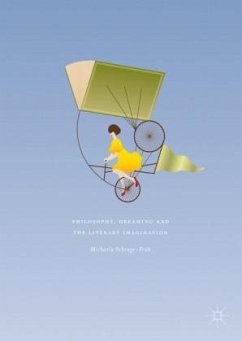This book explores the intersections between dreaming and the literary imagination, in light of the findings of recent neurocognitive and empirical research, with the aim to lay a groundwork for an empirically informed aesthetics of dreaming. Drawing on perspectives from literary theory, philosophy of mind and dream research, this study investigates dreaming in relation to creativity and waking states of imagination such as writing and reading stories. Exploring the similarities and differences between the 'language' of dreams and the language of literature, it analyses the strategies employed by writers to create a sense of dream in literary fiction as well as the genres most conducive to this endeavour. The book closes with three case studies focusing on texts by Kazuo Ishiguro, Clare Boylan and John Banville to illustrate the diverse ways in which writers achieve to 'translate' the experience and 'language' of the dream.
"Philosophy, Dreaming, and Literary Imagination is a treasure trove of theories and perspectives on a topic that will, we can hope, receive more attention in the future. It is particularly exciting to have Schrage-Früh's interdisciplinary approach, which not only delivers insights itself but also models how we might profitably do such border crossing." (Stephen T. Asma, Evolutionary Studies in Imaginative Culture, Vol. 1 (2), 2017)

